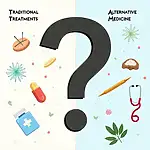Alcohol advertising is a controversial topic that frequently appears in IELTS Writing Task 2 exams. Based on past exam trends and current social issues, there’s a high probability of encountering questions related to alcohol advertisement restrictions in future tests. Let’s examine a relevant question that has appeared in recent IELTS exams:
Some people believe that advertisements for alcohol should be restricted or even banned. To what extent do you agree or disagree?
Analyzing the Question
This question asks for your opinion on restricting or banning alcohol advertisements. Key points to consider:
- The main topic is alcohol advertisements
- Two viewpoints are presented: restricting or banning ads
- You need to state your level of agreement or disagreement
- Explain your position with reasons and examples
Sample Essay 1 (Band 8-9)
Alcohol advertising has long been a contentious issue, with some advocating for its restriction or outright ban. While I acknowledge the concerns behind such proposals, I largely disagree with implementing severe restrictions on alcohol advertisements.
Firstly, banning alcohol ads would infringe on the principle of free speech and commercial freedom. In a democratic society, companies should have the right to promote their legal products, provided they adhere to existing regulations. Imposing stringent restrictions could set a dangerous precedent, potentially leading to censorship in other areas of advertising and media.
Moreover, alcohol advertisements often contribute significantly to the economy, supporting jobs in advertising, media, and related industries. A ban could have far-reaching economic consequences, particularly for small businesses and local breweries that rely on advertising to compete with larger corporations.
However, it is crucial to acknowledge the potential negative impacts of alcohol advertising, especially on vulnerable groups like youth. Rather than imposing blanket bans, a more balanced approach would be to implement stricter regulations on content and placement of alcohol ads. For instance, prohibiting ads near schools or during programs popular with minors could help mitigate exposure to young audiences.
Additionally, investing in comprehensive alcohol education programs could be more effective in addressing alcohol-related issues. By focusing on informed decision-making and responsible consumption, society can tackle the root causes of alcohol misuse without resorting to excessive advertising restrictions.
In conclusion, while the concerns about alcohol advertising are valid, I believe that complete bans or severe restrictions are not the answer. A nuanced approach that combines reasonable regulations, industry responsibility, and public education would be more effective in addressing alcohol-related issues while preserving commercial freedoms.
Sample Essay 2 (Band 6-7)
The issue of alcohol advertisement restrictions is a complex one, with valid arguments on both sides. In my opinion, while some restrictions are necessary, a complete ban on alcohol ads would be too extreme.
One reason why I believe some restrictions are needed is to protect young people from the influence of alcohol advertising. Many studies have shown that exposure to alcohol ads can lead to earlier and increased drinking among youth. By limiting where and when these ads can be shown, we can reduce their impact on vulnerable groups.
However, I don’t think a total ban is the right solution. Alcohol is a legal product, and companies should have the right to advertise their products to adult consumers. A complete ban could also have negative economic effects, especially on small businesses in the alcohol industry that rely on advertising to compete.
Instead of a ban, I believe we should focus on stricter regulations and more responsible advertising practices. For example, we could require alcohol ads to include clear health warnings or limit their placement in public spaces. This approach would balance the interests of businesses with public health concerns.
Another important point is that education about responsible alcohol consumption is just as important as advertising restrictions. Schools and communities should provide more programs to teach people, especially young adults, about the risks of excessive drinking.
In conclusion, while I agree that some restrictions on alcohol advertising are necessary, I don’t support a complete ban. A balanced approach that combines reasonable regulations, responsible advertising, and better education would be more effective in addressing alcohol-related issues in society.
Sample Essay 3 (Band 5-6)
Nowadays, many people think alcohol advertisements should be limited or stopped completely. I partly agree with this idea because there are both good and bad points to consider.
On one hand, banning alcohol ads could help reduce drinking problems. When people see less ads for alcohol, they might not think about drinking as much. This could be especially good for young people who are easily influenced by advertisements. Also, if there are less alcohol ads, it might help people who are trying to stop drinking.
But on the other hand, completely banning alcohol ads might not be fair. Alcohol is legal for adults to buy and drink, so companies should be allowed to tell people about their products. If we ban alcohol ads, it could cause problems for businesses that make and sell alcohol, especially small local companies.
I think a better solution is to have stricter rules about alcohol advertising instead of banning it completely. For example, ads could be not allowed near schools or during TV shows that children watch. Also, alcohol ads should have clear warnings about the dangers of drinking too much.
Another important thing is to teach people more about drinking responsibly. Schools and communities should have programs to help people understand the risks of alcohol and how to drink safely.
In conclusion, while I think some limits on alcohol advertising are good, I don’t agree with a total ban. It’s better to have careful rules and teach people about safe drinking instead.
 Effective alcohol education programs for youth
Effective alcohol education programs for youth
Vocabulary to Remember
-
Contentious (adjective) /kənˈtenʃəs/: Causing or likely to cause disagreement or argument.
-
Infringe (verb) /ɪnˈfrɪndʒ/: To break or violate a rule, law, or agreement.
-
Stringent (adjective) /ˈstrɪndʒənt/: Strict, precise, and exacting.
-
Mitigate (verb) /ˈmɪtɪɡeɪt/: To make less severe, serious, or painful.
-
Nuanced (adjective) /ˈnjuːɑːnst/: Characterized by subtle shades of meaning or expression.
-
Vulnerable (adjective) /ˈvʌlnərəbl/: Exposed to the possibility of being attacked or harmed, either physically or emotionally.
-
Comprehensive (adjective) /ˌkɒmprɪˈhensɪv/: Including or dealing with all or nearly all elements or aspects of something.
-
Excessive (adjective) /ɪkˈsesɪv/: More than is necessary, normal, or desirable; immoderate.
-
Exposure (noun) /ɪkˈspəʊʒə(r)/: The state of being exposed to an influence or risk.
-
Influence (noun) /ˈɪnfluəns/: The capacity to have an effect on the character, development, or behavior of someone or something.
Conclusion
The topic of alcohol advertising restrictions is likely to remain relevant in IELTS Writing Task 2 exams. To prepare, practice writing essays on related themes such as:
- The impact of alcohol advertising on youth drinking habits
- Balancing public health concerns with commercial freedoms in advertising
- The effectiveness of education versus regulation in addressing alcohol-related issues
- The role of government in controlling substance advertising
Remember to structure your essay clearly, use a range of vocabulary, and support your arguments with relevant examples. Feel free to share your practice essays in the comments section for feedback and discussion.


